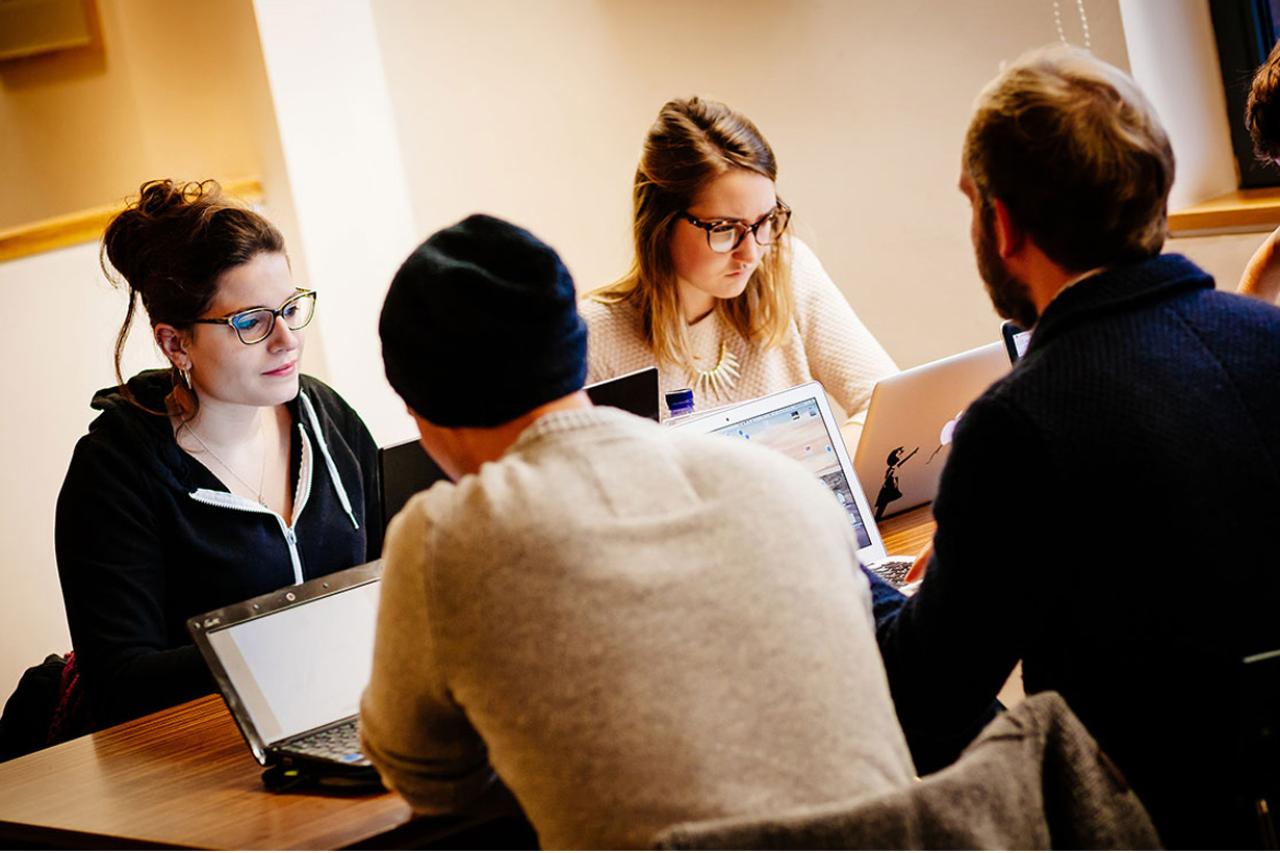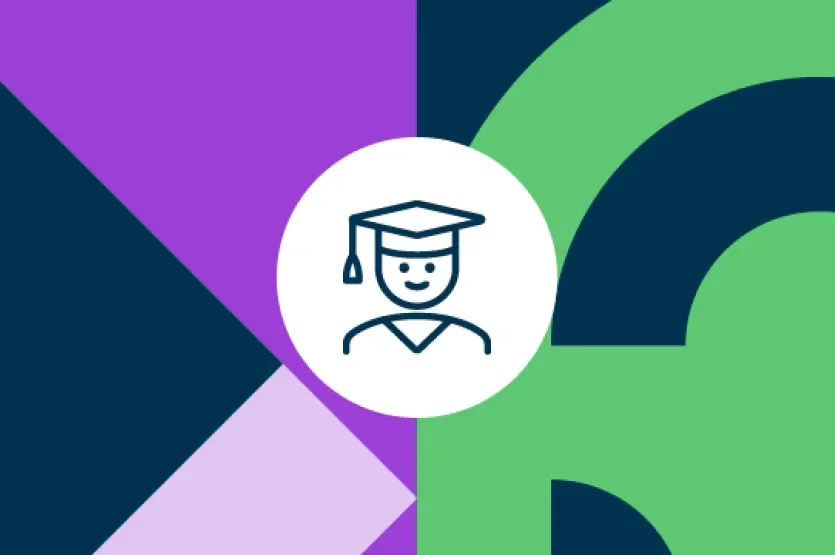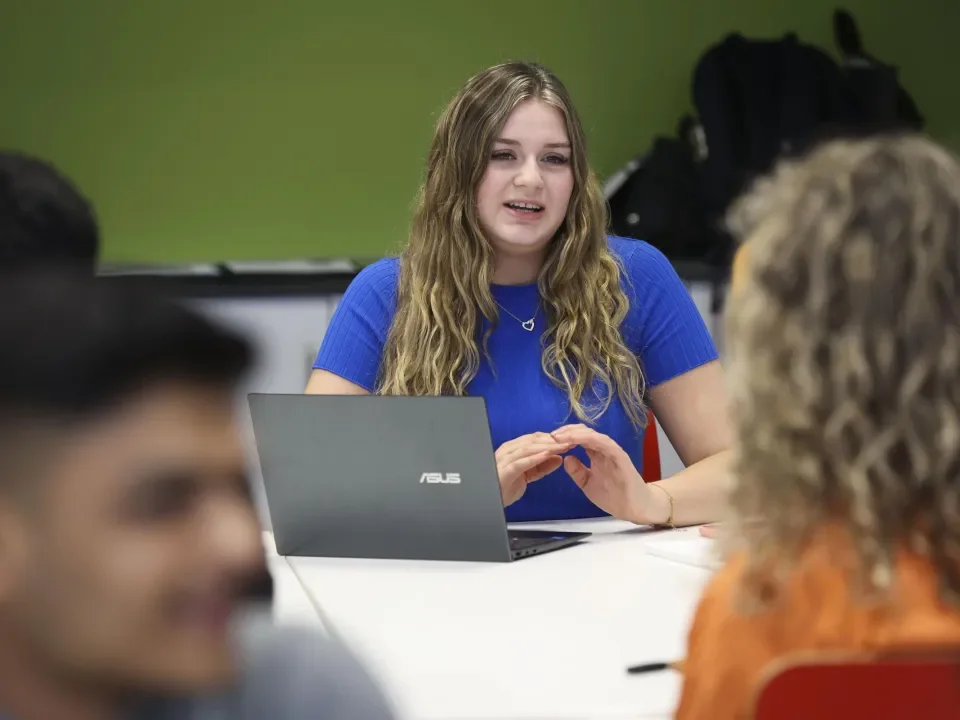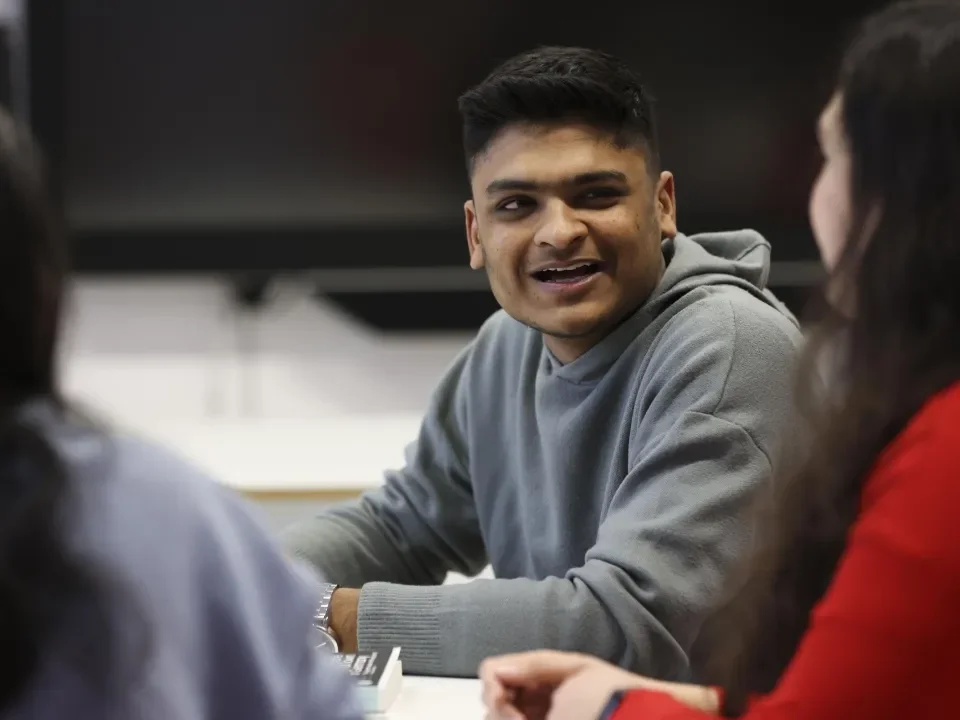Overview
Download our SPHE factsheet (PDF)
The Graduate Diploma in Social, Personal and Health Education and Relationships and Sexuality Education SPHE/RSE, the first of its kind in an Irish context, is funded by the Department of Education (DE) under an initiative to provide pathways for progression for post-primary teachers and to build capacity and leadership within the teaching profession in relation to the teaching of SPHE/RSE. This innovative, one-year, part-time NFQ Level 9 post-graduate programme of continuing teacher professional development is specifically designed to upskill and enable registered post-primary teachers to acquire, develop and advance their core competencies in the teaching of SPHE/RSE at Junior and Senior Cycle levels. The programme purposely incorporates three areas of professional learning, namely; personal development, skills and knowledge. Alongside the development of specialist subject knowledge, a focus on teachers’ own personal development and on the development of a skills-set needed for the SPHE/RSE classroom are key components of this programme.
Why DCU
DCU People
Careers & Further Options
Careers
Post-Primary Education
"DCU graduates are highly sought after by employers. Our Graduates work in environments ranging from large multinationals to SMEs, family businesses and start-ups across every sector.
DCU Careers Service has a number of learning and development initiatives in place for our students, giving them the skills they need for a successful career path."
Programme Structure
This programme is open to all serving teachers who are employed in a position funded by the Department of Education and who teach, and will continue to teach, SPHE/RSE in recognised Post-Primary schools. No fees or registration changes will apply to participants on the programme, who will continue to receive their salary in the usual way during their participation. Substitution cover will be supported by the Department of Education through block release days, up to four weeks/20 days across the duration of the programme, from the school in which the participant works. A blended approach to programme provision will be employed, combining in-person and synchronous and asynchronous online delivery. These varied modes of delivery are intended to accommodate the needs of working/in-service teachers and facilitate their participation in the programme. The teaching, learning and assessment methodologies employed across the programme seek to facilitate teachers’ critical interrogation of their knowledge and understanding of the policies, theoretical foundations and curricula salient to SPHE/RSE and of innovative, collaborative pedagogies and co-productive and creative ways of working with young people. The overall mode of assessment on this programme is continuous assessment. Participants will be assessed inter alia on the basis of:
- Recorded attendance at, and participation in, online and in-person sessions;
- Engagement with programme content and activities; successful completion of selected tasks;
- Successful completion of written and/or recorded/oral/visual assignments and artefacts across the four taught modules on the programme and pertaining to the year long Professional Practice and Partnerships module.
Transformative Leadership in SPHE/RSE
The aims of this module are threefold: Firstly, to support the development of participants’ knowledge, dispositions and skills for transformative leadership in the field of SPHE/RSE, and their viewing of other educational stakeholders as partners-in-process. Building teachers’ capacity through connection enhances not only the wellbeing and empowerment of teachers themselves, but has a positive impact at wider systems levels (Hargreaves and O’Connor, 2018; Hargreaves and Shirley, 2018). Secondly, the module aims to bring participants towards a critical social and cultural analysis of worldviews through reflection on diverse socio-cultural practices, expressions and norms. The module is grounded in a multi-disciplinary perspective, building on inter alia the insights of the Disciplines of Education (History, Philosophy,
Psychology, Sociology) as they relate to the curricular area of SPHE/RSE and within its context of Wellbeing (cf. Freire, 1970, 1998; Giroux, 2020; hooks, 1994). And thirdly, the module aims to broaden participants’ perspectives based on international research, best practice and positive solutions to challenges in the context of teaching and learning and/or of relationships with wider educational stakeholders, including inter alia their school’s culture/ethos, their students’ families, and wider communities. The overall rationale for this module recognises that teaching and learning does not happen in isolation. It emphasises the value in relation to teacher wellbeing of participants’ building and sustaining relationships within their own educational contexts and with key educational stakeholders across the wider educational community. The module will explore with participants, their transformative potential as agents and leaders of change within their educational settings and wider communities, acknowledging the possibilities, the sensitivities and the challenges associated with such change leadership.
On successful completion of this module the learner will be able to:
- Explore and evaluate the influence of socio-historical and legal contexts on educational settings’ cultures/ethos and their evolution and experience across diverse educational settings.
- Evaluate a range of theoretical approaches, scholarship and practices pertaining to SPHE/RSE and the contemporary influence of the Foundation Disciplines on the evolution of SPHE/RSE as a curriculum and apply their learning to their own professional contexts.
- Explore the potential of dialogical and relational pedagogies and approaches and their application across diverse educational contexts with emphasis on contested spaces through the use of case-study/scenario-based approaches and creative, arts-based media such as online material and social media popular in youth culture.
- Critically reflect on and analyse their educational setting’s culture/ethos, the socio-cultural contexts within which they engage and live out their relationships and on the wider societal values and norms and their application to SPHE/RSE.
- Identify a range of internal and external stakeholders relevant to their educational setting and critically analyse the contributions, positive and negative, such stakeholders can make to their teaching of SPHE/RSE and to their wellbeing, more generally.
- Critically reflect on the salience of fostering meaningful and collaborative relationships with students and their families, schools and wider communities and external stakeholders in education and health, recognising the particular rights and interests of parents/families as defined in the Irish Constitution.
- Explore and model a range of dispositions and skills in addressing sensitivities and challenges in relation to transformative leadership within their educational settings, with families and across wider communities.
- Demonstrate transformative leadership through identifying recommendations for change, with due consideration of their educational setting’s culture/context.
Professional Practice & Partnerships in SPHE/RSE
This year-long module will act as a fulcrum for participants' learning by providing scaffolded support for reflection on the integration of theory-practice and opportunities for participants to contextualise their learning from other taught modules on this programme. This module will seek to utilise, advance and integrate the existing skills and knowledge base that teachers of SPHE/RSE will bring to the classroom. Participants will receive formative feedback on their learning from experienced educators and peers. They will be supported to work collaboratively through Professional Learning Communities (PLC) which will help to scaffold leadership skills needed for collaborative practice in SPHE/RSE within/beyond their own school communities.
Module aims:
-
To develop teachers’ skills in becoming effective, responsive and confident teachers of SPHE/RSE.
-
To support participants to continually advance their professional practice from a holistic and systemic perspective, understanding their role as a skilled SPHE/RSE teacher but also leaders of SPHE/RSE within their schools and communities.
-
To develop a critical inquiry perspective, allowing participants to creatively audit, map and respond to the needs of key educational stakeholders (including young people and parents) in their school contexts.
-
To provide opportunities for participants to critically reflect on their evolving practice, its strengths, its challenges and links to the current body of literature on contemporary approaches to SPHE/RSE.
On successful completion of this module the learner will be able to:
- Demonstrate an understanding of the unique role of the teacher as professional in responding to the complex and intricate nature of teaching, learning, professional issues in SPHE/RSE.
- Critically reflect on their evolving practice, its strengths, its challenges and links to the current body of research and evidence on high quality SPHE/RSE.
- Demonstrate an understanding of the importance of sharing professional learning in a collegial manner to support and enhance teaching and learning.
- Demonstrate an understanding of necessary skills needed for collaborative practice and leadership in SPHE/RSE at a whole school level.
- Audit and map the needs of key educational stakeholders (including young people and parents) in their school contexts.
- Create bespoke learning programmes and initiatives that are responsive to the needs of young people and their school contexts.
Curriculum, Pedagogy & Assessment in SPHE/RSE
This module will provide opportunities for participants to explore what it means to create and maintain a safe, inclusive and empowering SPHE-RSE learning environment; one that is relevant and responsive to the needs of young people. Critical, creative, transformative and co-productive approaches to teaching, learning and assessment in SPHE/RSE at post-primary level will be actively modelled. Participants will be supported to enhance their own teaching and learning skills in their engagement with active and participatory pedagogical approaches through peer micro-teaching opportunities. These important peer micro-teaching opportunities will support participants as they develop their competence in research driven approaches to teaching, learning and assessment in SPHE/RSE. Through their active engagement in this module participants will be enabled to respond to the unique strengths, needs and interests of post-primary students. The module is also designed to enhance participant’s capacities as critical and creative consumers of evidence-based approaches to teaching, learning and assessment in SPHE/RSE. This module aims to facilitate participants’ critical understanding of how their practice meets educational policy and curricular framework requirements, (current and evolving) for Junior and Senior Cycle, and in turn, explore alignment with relevant international guidance and standards.
On successful completion of this module the learner will be able to:
- Demonstrate their knowledge of current and evolving curriculum and evidence-based approaches to teaching, learning and assessment of SPHE/RSE at post-primary level.
- Enhance their confidence and capacity to plan for and facilitate student-centred learning experiences using participative and experiential learning strategies.
- Enhance their capacity of becoming a reflective practitioner and the concept of life-long learning.
- Identify the interconnectivity between policy, theory, curriculum and praxis.
- Develop an understanding of the theories that underpin curriculum development and how they can be employed in the co-construction of SPHE-RSE curriculum with young people.
- Develop skills as flexible, critical and creative curriculum makers, responsive to curricular changes and evolutions.
Transformative Leadership in SPHE/RSE: Building Connections Across Diverse Contexts
This module’s rationale is to support students to deepen their knowledge and understanding of young people’s unique capacities and needs in relation to their learning in SPHE/RSE. Students will critically consider the role of inclusive, participatory, rights-based and creative approaches to SPHE/RSE and their role in supporting participants to be knowledgeable, informed, reflective teachers of SPHE/RSE. The module will enhance students’ understanding of young people’s social and emotional development, with particular focus on their identity, relationships, gender, sexual orientation, and mental health and wellbeing. Students will be supported to enhance their understanding of the value and role of the student voice in co-constructing learning in SPHE/RSE. Thus, equipping and empowering participants with the knowledge and skills to handle the theoretical and empirical complexity of young people’s learning needs and integrate this into their teaching practice. The overall aims of this module will be achieved through the further development of students’:
- knowledge and understanding of young people’s identity and social and emotional development and critical reflection on their attitudes and values in relation to young people’s learning needs and apply this to their classroom and whole school context.
- understanding and critical awareness of contemporary theory and research on the role of young people as key educational stakeholders in SPHE/RSE
- understanding and analysis of a rights-based approach and apply this to their own teaching contexts.
- understanding of the value and role of the young person’s voice in co-constructing learning in SPHE/RSE
On completion of this module participants will be able to teach, and become leaders in the teaching of SPHE/RSE through developing their knowledge, understanding, research literacy, skills, and attitudes, thus enabling their critical reflection on young people’s development and wellbeing.
On successful completion of this module the learner will be able to:
- Demonstrate a systematic understanding of the contexts and domains of young people’s social and emotional development with particular focus on their identity, relationships, gender, sexual orientation, and mental health and wellbeing.
- Demonstrate understanding of how legislation, policy, practices, pedagogies and curriculum shape young people’s experiences of SPHE/RSE.
- Show a critical awareness of the current challenges, controversies, and complexities in the fields of well-being, development, and the rights of the young person.
- Apply their knowledge and understanding of young people’s learning needs, wellbeing and development to their teaching and engagement with young people in the SPHE/RSE space.
- Use their knowledge and understanding to support their students’ voice to be autonomous and empowered in their decision-making around identity development, and relationships and through inter alia examination of the value and role of the young person’s voice in co-constructing learning in SPHE/RSE.
- Be enablers of children’s and young people’s rights through their teaching of SPHE/RSE.
- Use critical research literacy skills to handle the complexity of the current state of research and
- scholarship in the field and to ensure their understanding and practice in SPHE/RSE is empirically based.
Teacher Identity
This module’s rationale is to provide participants with space and structures within which to explore their personal and personally- professional development. Self-awareness, confidence, comfort, criticality and self-efficacy are known foundations of being effective SPHE/RSE teachers (UNESCO, 2021/WHO, 2017) and of inclusive teaching (GEMR, 2020/EADSNE, 2012).
Participating teachers will consider their own identity-formation and ongoing evolution/wellbeing while building their competence as agentic, assured professionals equipped to navigate inclusive implementation-of and leadership-in SPHE/RSE. Reflection in/on attitudes, values, feelings and experiences in the construction and enactment of SPHE/RSE are an important part of the journey to being knowledgeably robust, agile practitioners/leaders. Identity exploration is a foundation for teacher/leader(s) who can acknowledge and embrace the change/uncertainty/challenge that are predictable eventualities/opportunities within SPHE/RSE. Attuning to their own personal and teacher voices/views is integral to preparation for listening to and hearing, as well as advocating for, the diverse young people with whom participants work to co-construct valuable education for living healthy, fulfilling lives.
Aims of Module are to:
- Develop awareness of and personally-professional reflection on participants’ own attitudes, values, feelings, biases and experiences considering intersections/separations of these within one’s professional role as SPHE/RSE teacher;
- Enable critical-reflection on the role of societal values and norms (e.g. gender/ability/sexuality/race/ethnicity/social-class/religious-belief/language norms/expectations) in SPHE/RSE;
- Build knowledge and skills in the four core values of inclusive-teaching to enhance confidence for being diversity aware/responsive;
- Develop confidence for integrating theory, research and practice knowledge in context;
- Build change-readiness to sustain participants’ wellbeing throughout curriculum comprehensiveness and developments;
- Foster culture of dialogue/relationship among teachers as they develop competence for sustaining ongoing connections/communities of learning/teaching/leading/advocacy in SPHE/RSE.
On successful completion of this module the learner will be able to:
- Explicate awareness of their own attitudes, beliefs, values, feelings, biases and experiences and the relevance of these in context as teachers of SPHE/RSE.
- Deliberate their roles as agents in collaborative practice/leadership for SPHE/RSE in schools.
- Appreciate the centrality of their relationships: with selves, with each other; with young people, with whole-school community; with parents/carers and with other education partners in enacting SPHE/RSE curriculum and hidden curriculum.
- Use personal and critical reflexivity to apply integrated knowledge of theory, research and practice findings to engage comfortably in SPHE/RSE with young people and with other education partners in SPHE/RSE.
- Explain the salience of student voice and harvest their experiences of co-constructing learning in SPHE/RSE for implications arising from the complexities/challenges of these lived realities.
- Illustrate the meaning of inclusive-teaching drawing on examples of their experiences in navigating inclusivity (and the uncertainty this requires) within current curriculum specifications and guidance for teaching/leading SPHE/RSE.
- Demonstrate capacity for integrating/separating their personal positionalities in their professional roles as SPHE/RSE teachers/leaders/advocates.
- Articulate their analysis of the impact that societal/cultural values and norms can have on educators, on young people, on parents/carers and on other partners in terms of expectations, challenges and implications for SPHE/RSE.
- Locate themselves within current SPHE/RSE developments and implications for them within historic and policy contexts in Ireland and elsewhere.
- Synopsise and articulate their identity/ies as SPHE/RSE teacher, at a point in time, incorporating theoretical, policy, research and experiential journey events to date
The Graduate Diploma in Social, Personal and Health Education/Relationships and Sexuality Education is an innovative, one-year, part-time NFQ Level 9 postgraduate programme. It is a first-of-its kind course in Ireland, addressing the gap in teacher education provision in SPHE/RSE.
-
DCU’s Graduate Diploma in Social, Personal and Health Education/Relationships and Sexuality Education (SPHE/RSE) is a course for post-primary school teachers
-
The new SPHE post-primary specifications, which are available on curriculumonline.ie, include elements that are designed to support young people to understand issues of consent, to have respect for themselves and others, to appreciate the risks and negative impacts of pornography and to navigate today’s world safely
-
The Graduate Diploma is designed to help post-primary teachers and schools in the provision of the new SPHE/RSE curriculum for junior cycle and senior cycle students
-
This programme is funded by the Department of Education (DoE) to supplement teacher education provision in SPHE/RSE and it is the first programme of its kind at post-primary level in Ireland
-
The topics covered in the Graduate Diploma include mental health and wellbeing, consent, respect and relationships, equipping teachers to deliver the curriculum in a sensitive, age-appropriate manner
-
Supporting students and safeguarding their wellbeing are teachers’ number one priority, providing a safe space for students
-
The materials for the course are designed to help teachers do this, to support their understanding and to prepare them for the types of questions they will be asked by students
-
The enhancement and upskilling of teachers’ knowledge has the potential to effect lasting positive change for teachers,theirschools, the young people they are teaching and their families and communities
-
Teachers participating in the programme will be involved in critical exploration of resources and content related to SPHE and RSE, including examples used internationally as well as material accessed by children and young adults directly. As such, these materials are provided to them as adults and no graphic or explicit material is for use in a classroom setting
“When I went back to school and those tough conversations came up, I was much better equipped, and I was much more comfortable.”
Emma, Post-Primary Teacher, Dublin
“The new SPHE curriculum is excellent and provides excellent learning opportunities for students to learn about themselves and how to navigate the modern world. The DCU course is the first teacher training course in the area of SPHE and RSE in Ireland to fully support teachers in the delivery of this often sensitive yet highly necessary curriculum.”
Pam, Post-Primary Teacher, Cork
“I feel really confident, standing in front of a class and hosting a dialogue between the kids themselves that is respectful, but also honest and true to their diverse range of views.”
Courtney, Post-Primary Teacher, Wicklow
Download our SPHE factsheet (PDF)
Fees and Funding
How To Apply
Applicants can apply via DCU's Student Application Portal from 2nd December 2024, to 20th December 2024. Here's a quick step by step guide if you need help with your formal application.
Formal Application Requirements
All Applicants must submit the following support documentation with their formal application:
- Certified academic transcripts for each and every year of study, with certified English translations if applicable
- Copy of Teachers Registration Council membership (Note, cards will not be accepted, full certificate only please)
- Copy of passport
- Principal Declaration Form - please download here, complete and upload to your application in the portal.
- Additional Questions - completed within the application portal.
Non Native English Speakers - Additional
- Evidence of English competency which meets DCU entry requirements - see link
Application Queries
For EU applicant queries, please visit https://www.dcu.ie/registry/eu-postgraduate-taught-admissions or email pgedadmissions@dcu.ie
For non EU applicant queries, please visit https://www.dcu.ie/registry/international-admissions-undergraduate-and-postgraduate or email internationaladmissions@dcu.ie
Life On Campus
At DCU, our students can expect a unique campus experience. We are known for our excellent teaching and learning facilities, our active clubs and societies, and our great social and sporting facilities. All this makes DCU an exciting place to be.
DCU has three academic campuses; Glasnevin, St. Patrick’s and All Hallows (both in Drumcondra), all close to Dublin City centre.
They can be reached by public transport, Dublin Bus and Bus Éireann, with our Drumcondra campuses a ten minute walk from Drumcondra Train Station. Glasnevin is a 20 minute walk from St Patrick’s and All Hallows. They are also linked by Dublin Bus.
Each campus has a library (O’Reilly, Cregan and Woodlock Hall), study spaces, restaurants, and on-campus residencies. There are sports facilities on Glasnevin and St. Patrick’s, and there is a dedicated sports campus, St Claire’s, located near Glasnevin on the Ballymun Road.
DCU’s 19,000 students have access to exceptional teaching and learning facilities across our three academic campuses.
These include modern learning theatres, research centres, a new media and TV studio, radio/podcast studios, computer suites and advanced labs in the areas of Languages, Engineering, Physics, Chemistry and Biotechnology, as well as a Sports Performance centre and a training hospital ward. In 2021, we opened our first virtual reality ‘Leadership Lab’, which is located in our Business School.
We continue to improve and update our facilities. For example, construction of a new world-class STEM facility is underway on the Glasnevin campus. With capacity for an extra 3,000 STEM students, this facility will advance DCU’s international reputation for excellence in science and health, computing and engineering disciplines.
Studying in DCU isn’t just about course work. The university is rich in student life and activities.
There are more than 140 clubs and societies for students in DCU, with ‘Clubs & Socs’ days taking place on both the Glasnevin and Drumcondra campuses at the start of the academic year. They span everything from rugby to rock climbing, anime to jazz.
For many students, sport is an important part of the DCU experience. DCU’s Sports Complex boasts a 25 metre swimming pool, fitness centre gym, all-weather pitches and squash courts, as well as soccer, GAA and rugby pitches. DCU Dóchas Éireann, the university’s GAA club, is the largest third level Gaelic Games club in the country. Meanwhile, DCU Athletics has been Ireland’s highest achieving university club for many years. And DCU has dozens of other clubs to get involved in, from Archery to Weightlifting.
The Glasnevin campus is home to our purpose built, state-of-the-art student centre, The U, which serves the needs of a rapidly growing student body. Here, you will find the Student Leadership and Lifeskills Centre, performing arts and cultural spaces for students and the wider community, and the Entrepreneurship and Innovation Hub. Also located on our Glasnevin campus is The Helix, our renowned performing arts centre.
On our St Patrick’s campus, we have the Java Student Hub, a vibrant, warm and welcoming space where students can meet for coffee, play music, use the projector to watch events, or just relax. The walls of the Java Hub were designed based on the cultural history of St Patrick’s Campus, including the special references to the notable sporting history and history of the arts.
We have a number of academic, professional and social supports for students.
Student Advice & Learning Skills Centre - Offers a wide range of supports and services to students and advice
The Writing Centre - drop-in writing workshops for students through the academic year
Maths Learning Centre - provides maths support for students of all ability levels with maths modules
Student Learning - facilitate the transition from passive to active learning for students at DCU, by teaching study skills, nurturing critical thinking and building student confidence.
Careers work with students to help them on their professional journey into graduate employment.
Our student support team offers a comprehensive support programme, helping students make that all important transition into university life and focusing on building confidence and skills which are key to success at third level.
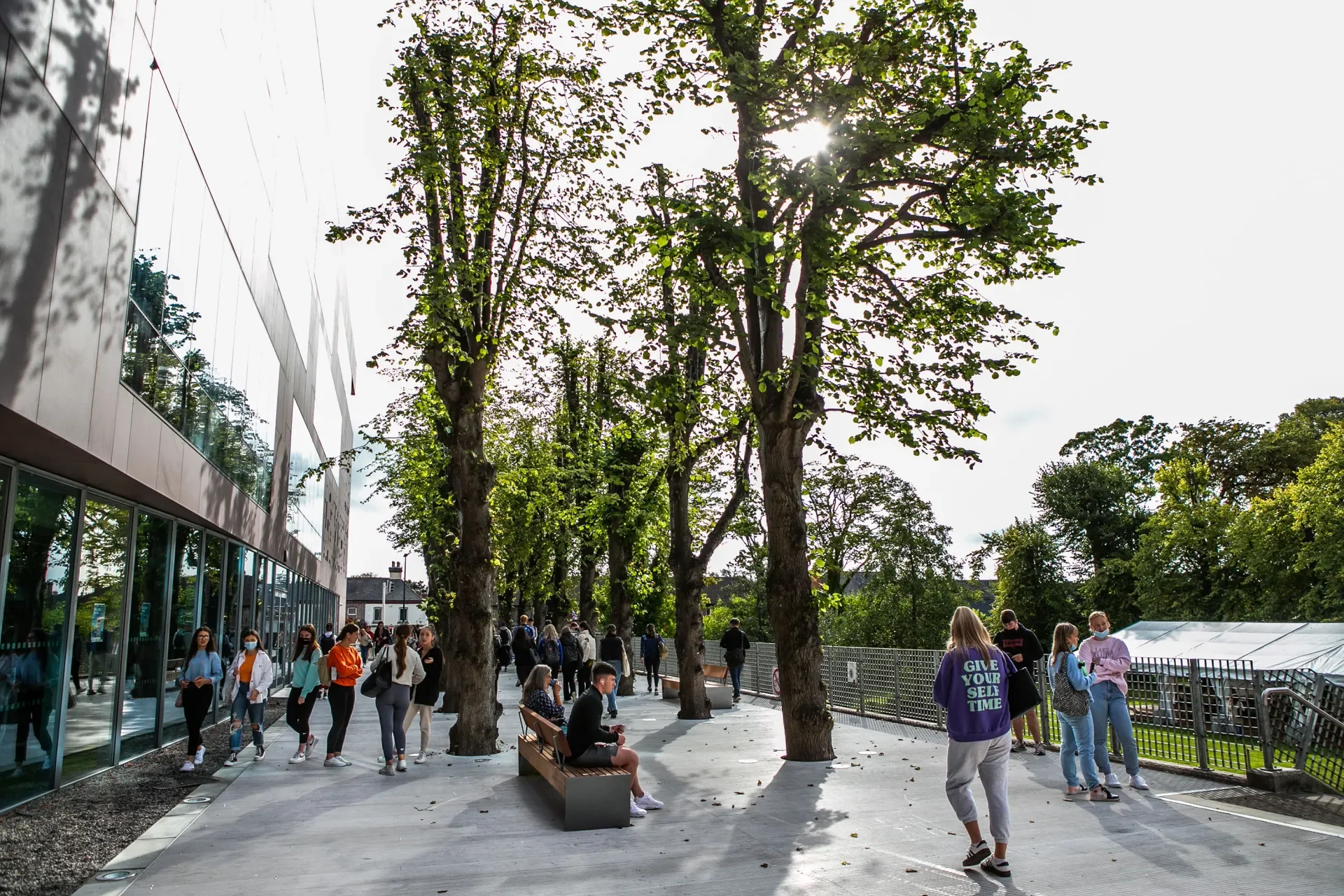
DCU St Patrick's Campus
FAQs
Purpose
The GDip SPHE/RSE programme offers pathways for progression for post-primary teachers interested in developing their knowledge, personal development and skills in teaching SPHE/RSE and in so doing build capacity and leadership within the teaching profession in relation to the teaching of SPHE/RSE. In turn, such enhancement and upskilling of teachers has the transformative potential to effect lasting positive change for teachers themselves, their schools, young people and their families and communities.
The programme is funded by the Department of Education (DoE), under an initiative that seeks to supplement teacher education provision in the area of SPHE/RSE.
Scheduling of In-Person and Online Sessions
Questions
- When will in-person classes for the January 2025 programme take place?
- My principal would like to know when the 20 days out of school time will be?
- Is there any further detail available on when/if travel will be required? Would this be for a block of time/individual days?
- Would the online components happen during the school day/evenings?
- How are attendance records maintained?
Answers
Students will have two consecutive days of in-person classes in DCU, in each month. The indicative schedule for those dates for the January 2025 cohort are as follows: note that these dates are subject to change:
- February 13th /14th Induction
- February 27th /28th
- March 20th /21st
- April 10th /11th
- May 22nd /23rd
Research Summer School (Date to Be Confirmed)
- September 11th /12th
- October 9th /10th
- November 6th /7th
- November 27th /28th
- January 15th /16th
Regarding online elements of the programme, these will in the main, be scheduled on one evening per week, and will be hosted after school hours. Dates and times to be confirmed for the January 2025 cohort. Online classes will take place during the academic term, exclusive of mid-term/Easter school holidays.
A SPHE/RSE Research Summer School will also be scheduled, this may be in-person, online or a hybrid of both. Specific arrangements for the Summer School and date/s to be confirmed.
Attendance records are maintained by signing-in at the in-person session. For online sessions attendance reports are generated by the communications platform employed e.g. Zoom.
Programme Structure and Content
Questions
- What is the course layout?
- Is there a placement element involved in the course?
- What forms of assessment are used?
Answers
The programme structure is outlined on the programme webpage under the programme.
The course is research-informed and will focus on supporting teachers to critically engage with a broad range of content areas specific to SPHE-RSE. Support will also be provided for teachers to identify the unique needs for their own students and to listen with the intent to respond in a meaningful way.
There is a year-long module entitled Professional Practice and Partnerships, where the aims are that students will apply their learning on the taught modules to their practice in their own school setting.
The assessment on the programme is by continuous assessment which includes a wide variety of assessment modes. Some of the forms of assessment include the following:
- attendance, in-person, at lectures and workshops facilitated through a series of release days from school (20 days) across the one-year programme,
- attendance at a Research Summer School as required,
- on-line learning, attendance at approximately one two-hour online lecture/workshop/seminar per week across DCU’s academic year,
- creation and development of evidence of professional practice with which the student has engaged throughout the programme;
- engagement in professional learning communities (PLCs),engagement in professional consultations with programme mentors/tutors.
There will be other assessment elements for each of the taught modules.
Eligibility Criteria
Questions
- I am currently on a career break but will be teaching SPHE on my return. Can I still apply ?
- Can I apply for the course if I do not currently teach SPHE but have previous experience covering a parental leave teaching SPHE ?
- I have completed multiple trainings for SPHE and RSE but only have a certificate for Senior Cycle RSE and am not able to access my attendance records when I did the other training, is this sufficient evidence?
Answers
The programme is open to all serving teachers, fully registered with the Teaching Council, who are permanently employed, or have a contract of indefinite duration, in a position funded by the Department of Education and who teach, and will continue to teach, Social, Personal and Health Education and/or Relationships and Sexuality Education in recognised post-primary schools.
As part of the eligibility criteria outlined in the Department of Education Circular eligible students will need to be teaching SPHE/RSE at the time of application and for the duration of the course i.e. from January 2025 - December 2025.
Formal certification or documentation, including email correspondence, which indicates attendance at/release to attend the training is sufficient evidence to support an application for the programme.
Application Process
Questions
- Is there an interview for a place on the course?
- I am trying to formally apply through the DCU Student Application Portal but it won't accept my pps number?
- If offered a place on the course, and my circumstances have changed, can I defer my place?
- Where can I find the SPHE/RSE Principal Declaration Form?
- What information should I include in my Personal Statement?
Answers
Application is by way of the online application process accessible from November 2024 the link for which will be available on this programme webpage at that time. There is no interview as part of the application process.
When your query relates to an issue with the Student Application Portal, please log a call with DCU Information Systems Service ISS: dcu.ie/iss. This will bring you to the ISS webpage, at the end of the Welcome paragraph there is a link which those without a DCU account can click on to log a ticket.
Deferral of a place is not permitted on the 2025 programme.
The Principal Declaration Form can be downloaded via this link: gdip-sphe-rse-principal-declaration.docx
The Personal Statement is an important part of the application process for the GDip SPHE/RSE programme. It affords you the opportunity to outline some key things about yourself, such as:
- Your personal and professional motivation for applying to take part in the programme
- Your experience, to date, of teaching SPHE/RSE and of leadership of the subject in your school and/or wider community contexts
- Your vision for and future plans as an SPHE/RSE teacher.
The maximum word count for the personal statement is 400 words.
What courses are offered by the DCU Institute of Education?
DCU Institute of Education brings together students of education and provides a rich menu of undergraduate courses across all sectors from early childhood, to primary and post-primary and further and higher education. We offer a range of taught and research postgraduate courses at doctoral, masters, diploma and certificate level and have a distinguished record in providing continuing professional development.
Is there Garda vetting for students who study DCU Institute of Education courses?
Garda vetting is required for all students who have unsupervised access to children and vulnerable adults as part of their studies at DCU. Applicants must successfully pass the Garda vetting process in order to complete the registration process.
What are the potential teaching pathways for primary, post-primary and further education and training offered by DCU?
Primary Teaching Pathways
Undergraduate*
Postgraduate**
- Professional Master of Education (Primary Teaching) - DC970
* Please ensure that you consult minimum entry requirements and CAO points for all undergraduate programmes
** Please ensure that you consult minimum entry requirements for all postgraduate programmes
Post-Primary Teaching Pathways
Undergraduate*
- Bachelor of Religious Education & English or History or Music - DC010 | DC011 | DC012
- Bachelor of Education in Gaeilge and French or German or Spanish - DC013
- Bachelor of Education in Technology, Engineering and Graphics - DC015
- Bachelor of Science (Hons) in Science Education - DC203
- Bachelor of Science (Hons) in Physical Education with Biology - DC205
- Bachelor of Science in Physical Education with Mathematics - DC206
Postgraduate**
- Professional Master of Education (Post-Primary Teaching) - DC905
* Please ensure that you consult minimum entry requirements and CAO points for all undergraduate programmes
** Please ensure that you consult minimum entry requirements for all postgraduate programmes
Further Education and Training Teaching Pathways
Undergraduate*
- BSc (Hons) in Education and Training (Further, Adult and Continuing Education) - DC235
* Please ensure that you consult minimum entry requirements and CAO points for all undergraduate programmes

